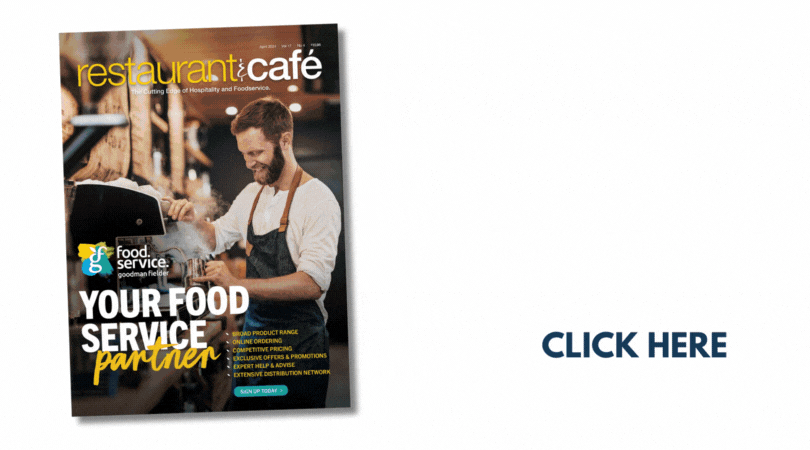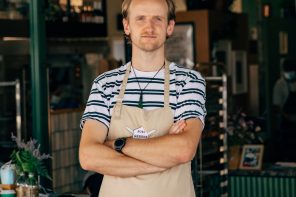Originally from India, Dominic Dsouza grew up with a strong influence of spice in cooking. His grandmother and mother’s cooking is a cherished highlight of his childhood, and he has fond memories of spending time with them in the kitchen. He said that his grandmother often told him that cooking was an expression of grace, love, and kindness to others.

Dsouza knew from an early age that he wanted to be a chef and that he would one day pursue a career in the kitchen. Since training at the Alain Ducasse School and Restaurant, he has had over 13 years of experience in the hospitality industry.
He has staged and worked in three Michelin-starred restaurants, including Geranium in Copenhagen (named the World’s Best Restaurant of 2022), Indigo in Mumbai, and Sidart and Sid at the French Cafe on local shores. His time in Copenhagen was a career highlight for Dsouza, who said working with one of the best chefs in the world was a very special experience.
His philosophy for cuisine has centred on seasonality, sustainability and working with the rhythm of nature with a touch of modern gastronomy. He said that his current role as executive chef at Te Karaka Lodge is the perfect location for his cooking style as it is situated on a beef and sheep station.
“Treating top quality produce with the utmost integrity is my approach to my culinary art where simplicity and respect for the ingredients reflect on each dish to shine,” said Dsouza.
Recently, Dsouza has been working on introducing savoury flavours for deserts, such as the use of pepper and spinach as a cleanser. He has crafted a dish that uses nasturtium compressed with grape seed oil and stuffed with sweetened pickled chilli cilantro sorbet.
In his opinion, using artificial intelligence and robotics solves operational issues and staff shortages, but at the same time, loses a crucial element in hospitality. He said that there are pros and cons to using such technologies in the industry, but it will be difficult to keep a graceful hospitality service alive should the implementation continue.
“I think creative surprises, personal service, and graceful empathy all together make hospitality service a beautiful experience. You can only achieve this with human association.”

Dsouza added that using robotics may offer efficiency and cost-saving benefits, but it should be limited to services they are suited to, for example, self-service checkouts or reservation management systems. He predicted that it is a possibility that the future of hospitality services will be replaced with robotic services entirely.
“We should not forget that a human touch cannot be replaced by a machine.”
Dsouza said that anyone should first understand that hospitality can be a demanding industry. He said it is important for junior chefs to look for mentors in the industry early on, and to always cook passionately. He added that if a chef is in the pursuit of excellence, success will follow.
In the future, Dsouza hopes to one day represent New Zealand at an international culinary competition.






